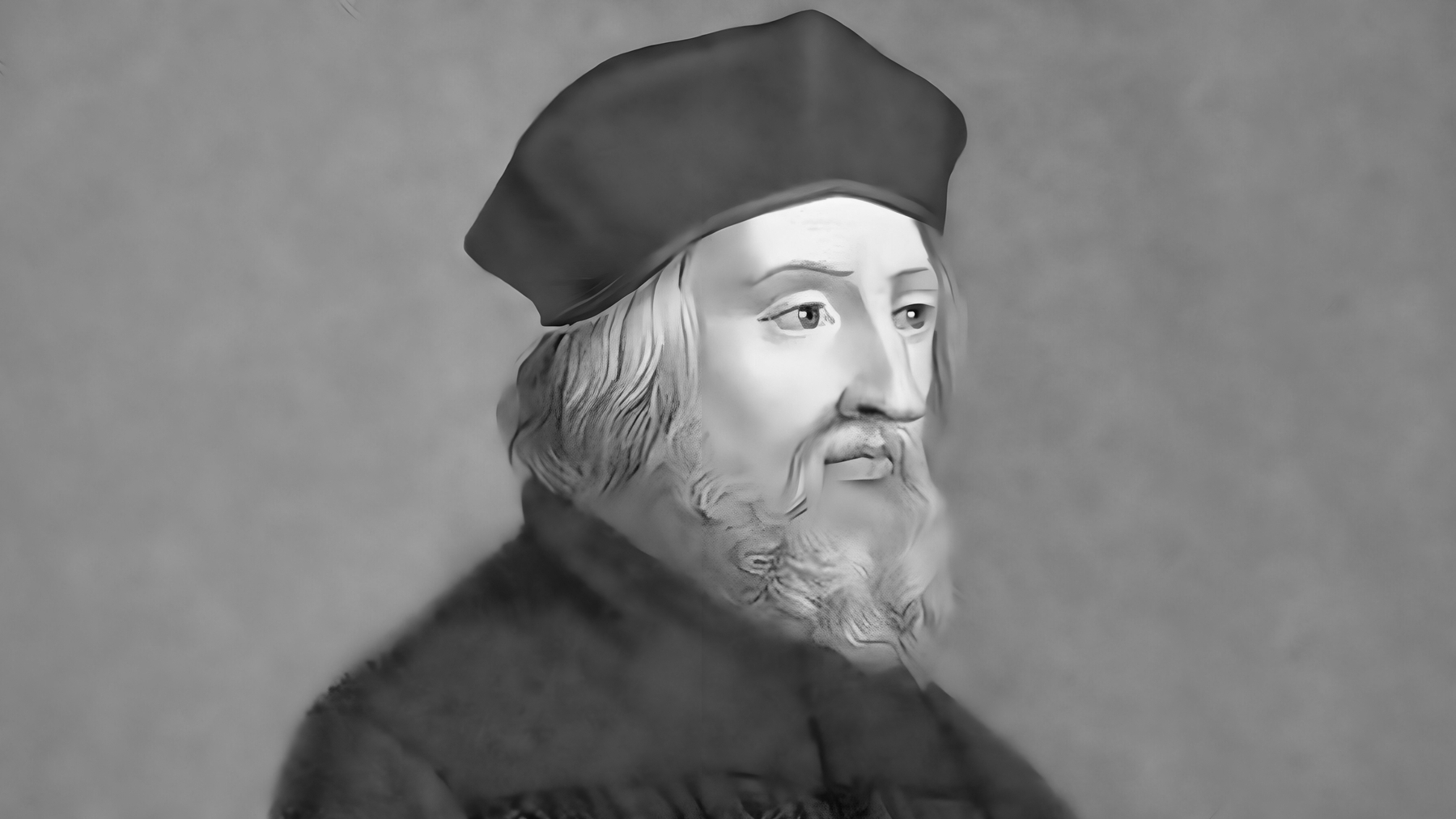Written by Marek Novak
 Jan Hus
Jan Hus
Jan Hus, also called John Hus or John Huss, was born in Husinec around the year 1370 in Husinec and he died on the 6th of July, 1415 in Constance. He was a Czech theologian and philosopher. He is most well known as a Church reformer and also as an inspiration for Hussitism. He was inspired by the English reformer John Wycliffe. Jan Hus had a really strong influence on the states of Western Europe. He also was a rector at Charles University in Prague.
Jan Hus was born to a poor family. He went to Prague, where he served in churches and started training for the priesthood. His actions were mostly motivated by a vision of financial security. He achieved a Bachelor’s degree and then a master’s degree. Then he began to preach in Prague. Bethlehem Chapel is the most well-known place where he preached. At this time Jan Hus started criticizing the Church. He opposed indulgences and was also against the Church’s ostentation wealth. . Due to this stance Hus was excommunicated and banned from preaching. Although he continued preaching in Kozi Hradek. At this time he had a lot of followers and his ex-communication disturbed including King Wenceslav IV.
Jan Hus was invited to the Council of Constance to defend himself, but Hus knew council was mostly interested in his condemnation. Jan Hus was arrested because of rumors that he was trying to fly from Constance. Zigmund, the king of the Holy Roman Empire, tried to protect Hus , but even the king was powerless to prevent the council from destroying Hus’ reputation. At this time Hus his autobiography.
Jan Hus was many times asked to call off his sermons, but he refused to stop speaking in public. He said he would only recant if his errors should be proven to him from the Bible. He was labeled a heretic. The council ordered Hus burned at the stake. . Before the execution, Jan Hus declared – “you may kill a weak goose (in Czech Hus means goose), but more powerful birds, eagles and falcons, will come after me”. At the place of execution he prayed. He knelt to his knees and spread his hands, then he was consumed by the flames. His ashes were thrown into the Rhine River. That was meant to prevent the veneration of his remains, but soon he would be considered a martyr and eventually the most important Czech national hero.